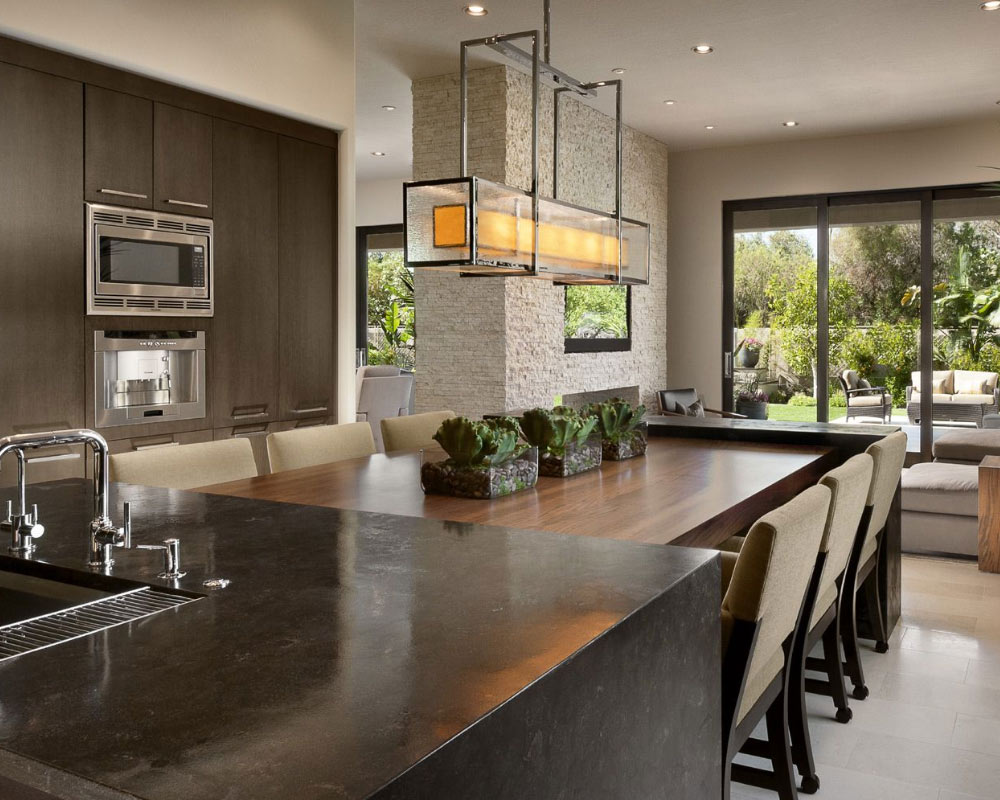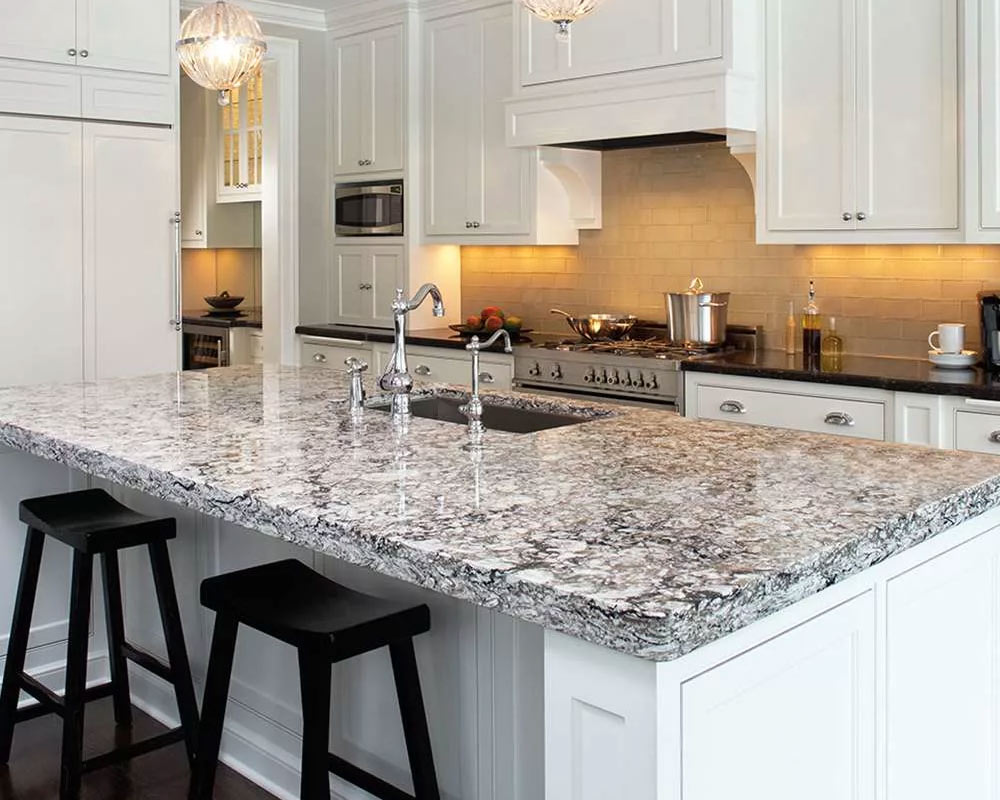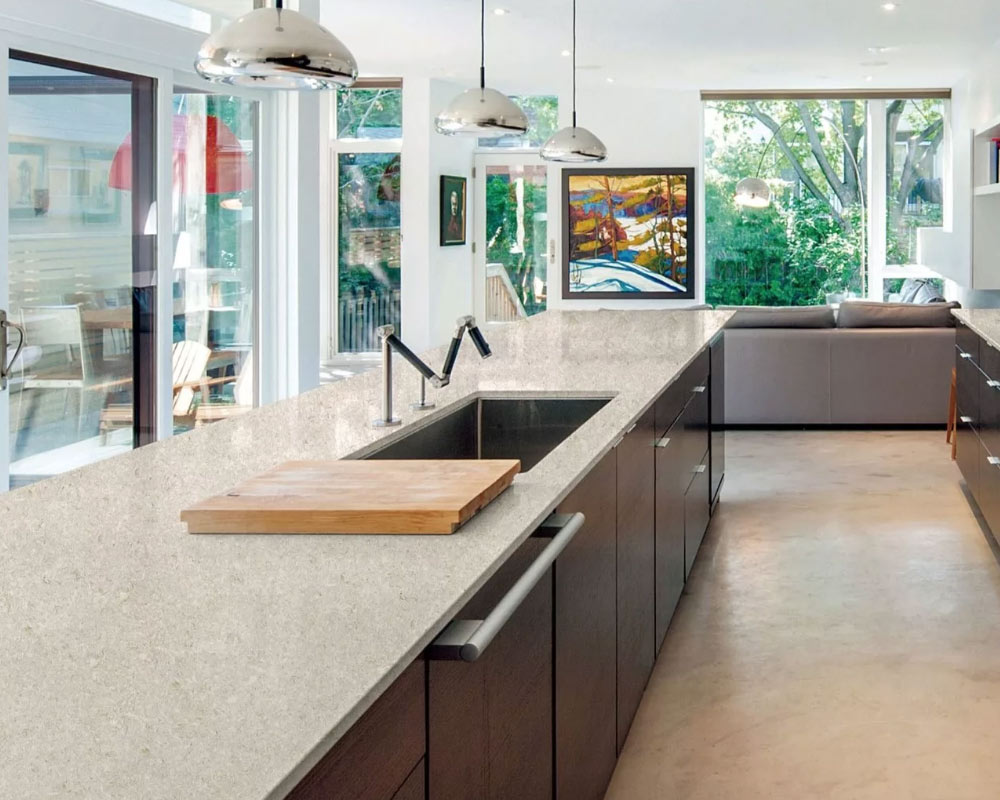COMPARING ENGINEERED QUARTZ AND NATURAL STONE COUNTERTOPS: WHICH IS RIGHT FOR YOUR HOME?
Quartz stone and natural stone countertops are both popular options for homeowners and interior designers looking to upgrade their kitchen or bathroom. However, despite their similarities, there are several key differences between the two materials that make them better suited for different applications and preferences.
One of the main differences between quartz stone and natural stone is the way they are manufactured. Quartz stone is engineered from natural quartz crystals that are combined with resins and pigments to create a durable and consistent surface material. Natural stone, on the other hand, is quarried from the earth in its natural state and then cut and polished to create a finished product.

IN TERMS OF DURABILITY AND MAINTENANCE
quartz stone is generally considered to be a more low-maintenance option than natural stone. Quartz stone is non-porous and resists staining, which makes it much easier to clean and maintain than natural stone, which can be porous and prone to staining and etching if not properly sealed and cared for. Quartz stone is also much less prone to chipping and cracking than natural stone, which can be prone to cracking and breaking if not handled with care.
IN TERMS OF DESIGN AND APPEARANCE
quartz stone is often considered to be a more versatile and customizable option than natural stone. Quartz stone can be made in a wide range of colors and patterns, allowing homeowners to select a surface that matches their specific design style and aesthetic preferences. Natural stone, on the other hand, is limited to the colors and patterns found in nature, which can sometimes be more limited and less versatile.

Another advantage of quartz stone over natural stone is cost. Quartz stone is generally more affordable than natural stone, making it a more budget-friendly option for those looking to upgrade their kitchen or bathroom. This affordability is due to the fact that quartz stone is engineered in a factory, which reduces the cost of production and labor compared to the cost of extracting, cutting, and polishing natural stone.
While both quartz stone and natural stone have their pros and cons, the decision between the two ultimately comes down to individual preferences and needs. Homeowners who are looking for a low-maintenance and affordable option may prefer quartz stone, while those who value the unique and natural beauty of natural stone may prefer this option. Regardless of the choice, both quartz stone and natural stone can add beauty, durability, and value to any home.





